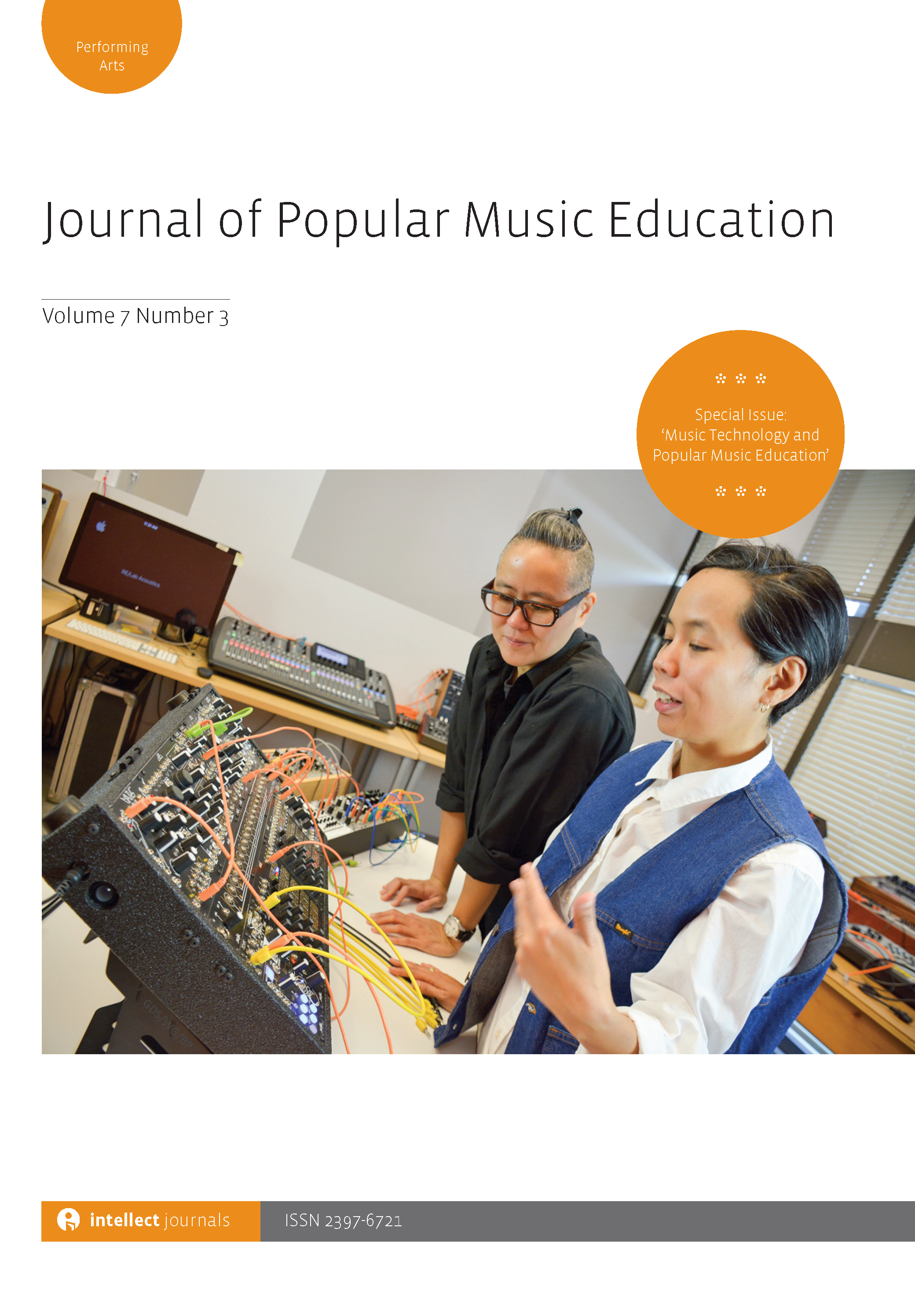
Full text loading...
 , Cara Faith Bernard2
, Cara Faith Bernard2
This article is based on the lived experiences of the authors engaging with modern band and the organization Little Kids Rock (LKR). We approach this research as critical storytelling to highlight the importance of critique of music curriculum and pedagogy. We identify moments of cognitive dissonance we experienced with LKR and modern band and unpack them through theory. Data included review of LKR materials, journals, text messages, reflective writing and discussion around participation in LKR-sponsored events. We share our critical story through text messages and narration, through which we note issues such as neo-liberalism and indoctrination; language (mis)use through educational buzzwords; identity reformation and the manner in which teachers feel a need to cling to methodolatry or act as change agents. We illustrate the central role critique plays in music teaching discourses and practices to guide music teachers to accept vigilance of curricular resources and pedagogical approaches presented to them.

Article metrics loading...

Full text loading...
References


Data & Media loading...

Publication Date:
https://doi.org/10.1386/jpme_00063_1 Published content will be available immediately after check-out or when it is released in case of a pre-order. Please make sure to be logged in to see all available purchase options.